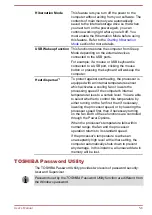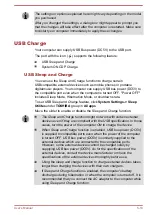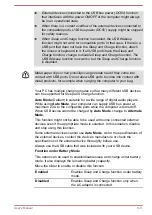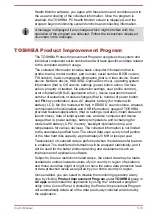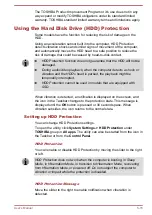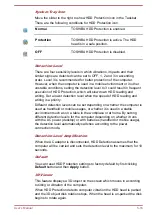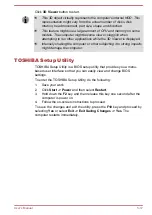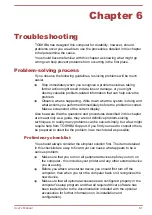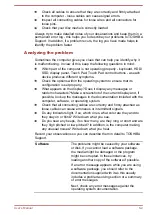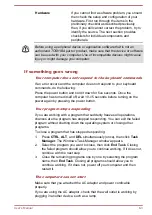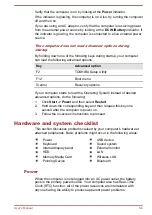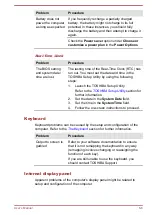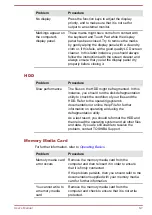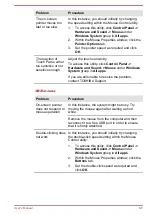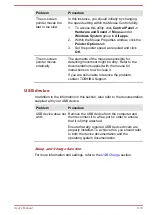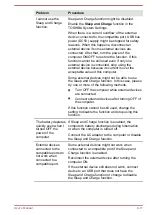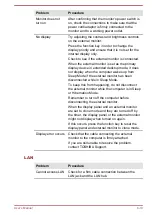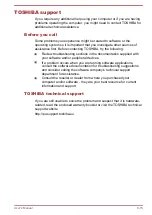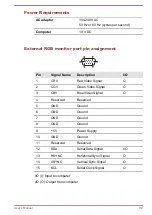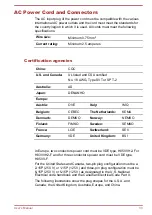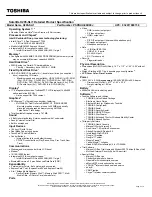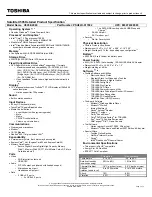
Hardware
If you cannot find a software problem, you should
then check the setup and configuration of your
hardware. First run through the items in the
preliminary checklist as described previously
then, if you still cannot correct the problem, try to
identify the source. The next section provides
checklists for individual components and
peripherals.
Before using a peripheral device or application software that is not an
authorized TOSHIBA part or product, make sure that the device or software
can be used with your computer. Use of incompatible devices might cause
injury or might damage your computer.
If something goes wrong
Your computer does not respond to the keyboard commands
If an error occurs and the computer does not respond to your keyboard
commands, do the following:
Press the power button and hold it down for five seconds. Once the
computer has turned itself off, wait 10–15 seconds before turning on the
power again by pressing the power button.
Your program stops responding
If you are working with a program that suddenly freezes all operations,
chances are the program has stopped responding. You can exit the failed
program without shutting down the operating system or closing other
programs.
To close a program that has stopped responding:
1.
Press
CTRL
,
ALT
, and
DEL
simultaneously (once), then click
Task
Manager
. The Windows Task Manager window appears.
2.
Select the program you want to close, then click
End Task
. Closing
the failed program should allow you to continue working. If it does not,
continue with the next step.
3.
Close the remaining programs one by one by selecting the program
name, then
End Task
. Closing all programs should allow you to
continue working. If it does not, power off your computer and then
restart it.
The computer does not start
Make sure that you attached the AC adaptor and power cord/cable
properly.
If you are using the AC adaptor, check that the wall outlet is working by
plugging in another device, such as a lamp.
User's Manual
6-3

